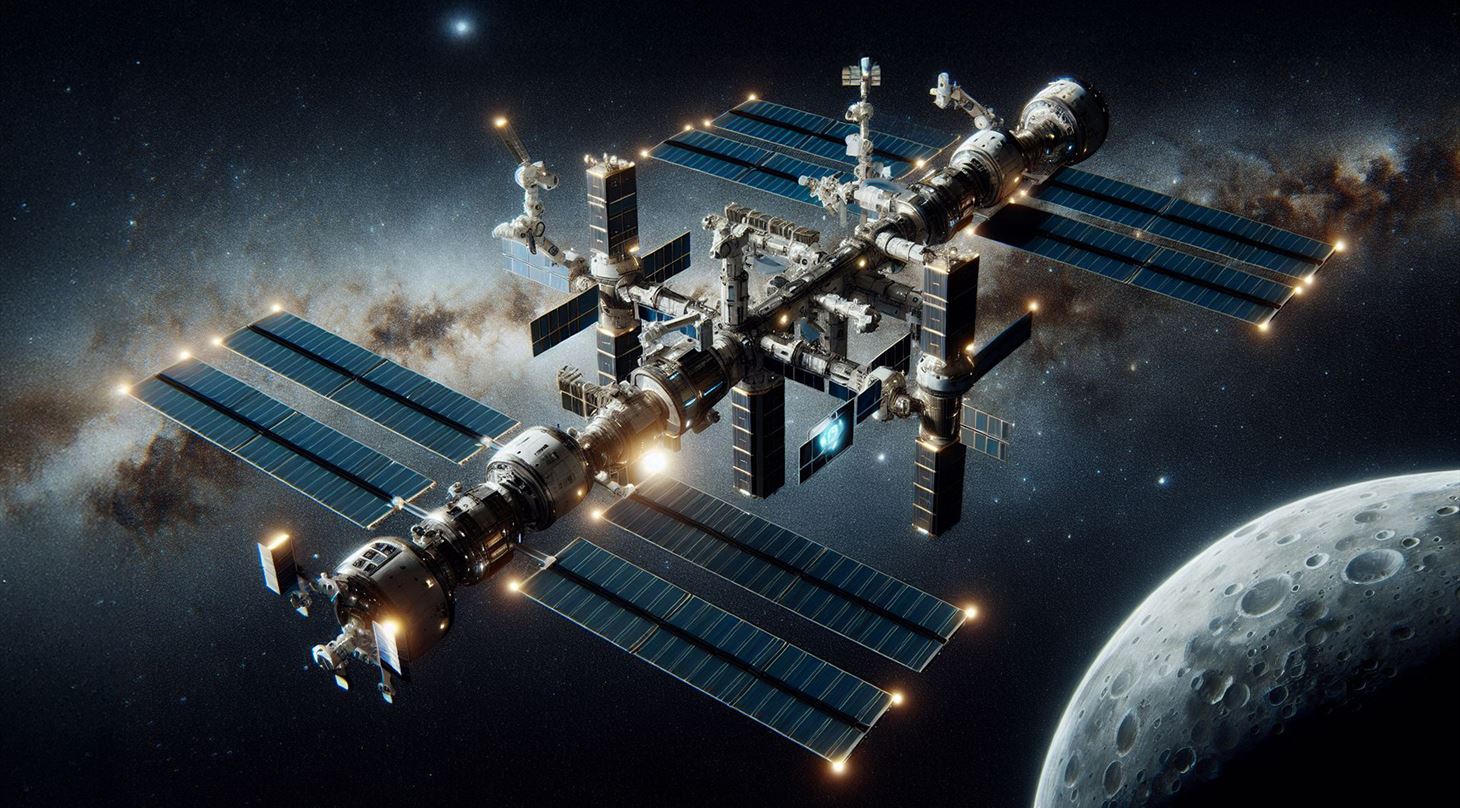
Robots of the future to build space stations (and be ready for the unexpected)
Press release
29 August 2025
The Danish Technological Institute (DTI) will assist the European Space Agency (ESA) in developing robotic technology for the construction and maintenance of everything from space stations to solar arrays in space.
The building, maintenance, and recycling of large structures in space – such as space stations, data farms, and solar arrays – is a major focus area for future space activities.
Through the SpaceAlign project, DTI will now develop and test new software and control solutions paving the way for robots to carry out these tasks automatically and autonomously.
‒ ESA has asked us to investigate how we can make robots reliable and adaptable partners throughout the entire lifecycle of large space structures – from construction and maintenance to dismantling and recycling – with minimal human intervention and maximum autonomy, says Mikkel Labori, Product Manager at DTI.
Reliability and safety in focus
Until now, space robots have relied on pre-programmed instructions, as communication delays and vast distances make direct human control difficult. Now, however, robots must become better at making their own decisions in unforeseen situations.
In collaboration with ESA and key European space stakeholders, DTI will therefore develop an advanced simulation platform to test safety and reliability checks. In addition, software will be developed and tested to independently monitor, analyse, plan, validate, and execute robotic tasks – even when the environment changes unpredictably.
‒ We need to develop and demonstrate a software and simulation solution that enables autonomous robots to adapt and act safely during the construction, maintenance, and dismantling of large space structures – with a particular focus on safety and robustness against unforeseen events, explains Christian Skov Esbensen, Consultant at DTI.
Combining two demanding fields
The project combines two technologically challenging fields: Autonomous robotics and the environment in space.
Dust, radiation, and sensor failures are just some of the challenges robots may face – and in the future, they must be able to handle and compensate for these. One method of achieving this is by sending the robots to "training camp".
‒ An important part of the project will be to create a realistic simulation in which one can test how the robot adapts to new situations. In this way, the simulation acts as a kind of ‘training camp’, where the robot and its systems can learn to cope with the space environment – without the high costs of failure, says Christian Skov Esbensen.
Through the project, DTI will involve input from key stakeholders to ensure that the solution matches the needs of the industry. The project’s results – including the simulation platform and reports – will be made openly available so that the entire European space robotics sector can benefit from the experience gained.
Facts about SpaceAlign
Project
SpaceAlign – Trustworthy Robotics for Large Space Structures
Funding
European Space Agency (ESA)
Project period
May 2025 to April 2026
Purpose
To develop and simulate software and control solutions enabling robots to safely and autonomously assemble, maintain, and dismantle large structures in space
Main partner
Danish Technological Institute (DTI)
Contact
Mikkel Labori Olsen, Product Manager, miol@dti.dk, +45 72 20 15 41
Christian Skov Esbensen, Consultant, cse@dti.dk, +45 72 20 22 22
Facts about DTI
DTI's robot technology center is recognised as one of Europe's leading robotics innovation hubs. With more than 35 years of experience, the centre is a respected and sought-after research partner in both national and international research projects.
In 2024, DTI opened its Space Robotics Lab dedicated to developing and testing robotic systems designed specifically for space.
The Institute has already taken part in the development of a robotic arm for collecting soil and rock samples on Mars as part of ESA's contribution to NASA's Mars Sample Return mission, and is currently developing a protective covering – a so-called smart skin – for robotic arms to pave the way for more robots in space.